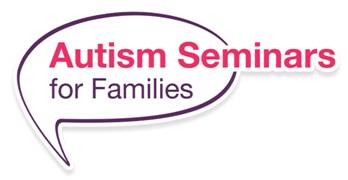Do you support families who have a child with autism?

We have developed a brand new resource to assist you. Our Facilitator Resource Pack will enable you to deliver autism seminars in your local area for up to 15 families at a time.
We have developed a brand new resource to assist you. Our Facilitator Resource Pack will enable you to deliver autism seminars in your local area for up to 15 families at a time.
Autism Seminars for Families are based on the highly successful help! programme that has been run by The National Autistic Society since 2002.
The packs are a cost effective way to help you support families; providing them with practical advice and tips for everyday life.
These are designed to be used flexibly – wherever you are in the UK and whatever family support role you are in.
A Facilitator Resource Pack includes:
- A guide to running successful family seminars
- Understanding Autism presentation, seminar plan and facilitator notes
- Access to a special online discussion group.
In addition to purchasing our Facilitator Resource Pack, you may also choose to attend a one day training course designed to help you make the most of your pack and support you with the delivery of your seminars.
To purchase your Facilitator Resource Pack and Seminar Booklets visit here


